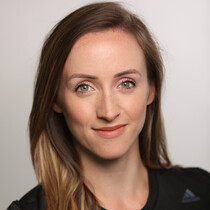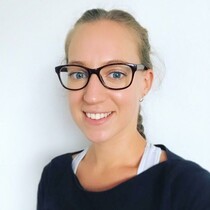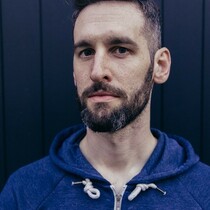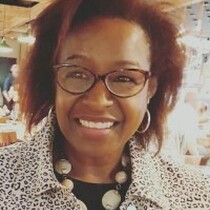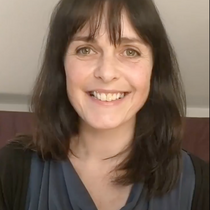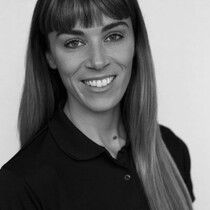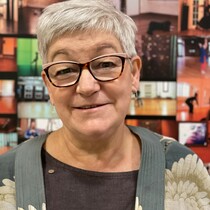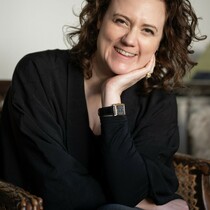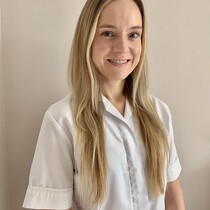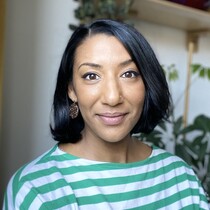At LCDS we understand that maintaining a healthy mind and body are vital to realising your full potential.
That is why there are a range of student services available to you, providing a holistic approach to your physical and mental health and wellbeing.
Overseen by the Director of Registry and Student Wellbeing and the Head of Dance Science, the team is made up of the Learning Support Coordinator, who looks after the area of students with Specific Learning Differences and Neurodivergent conditions, a Mental Health Advisor, student counsellors, an Osteopath, Physiotherapist, Sports Massage Therapist and a Strength & Conditioning coach.
What's available to you
Mental Health Advisor
Our Mental Health Advisor provides you with a supportive space to discuss your mental health and wellbeing and what could help.
Examples of the challenges you might discuss include:
- Having a mental health condition which is impacting your life and studies
- Feeling that your mental health is worsening and affecting your studies and wellbeing
- Feeling anxious, overwhelmed, or low
- Noticing you have a difficult relationship with food
Support you can discuss with our Mental Health Advisor includes:
- Ways of managing your mental health condition during your studies, including accessing further support through Disabled Students’ Allowances
- Additional support available inside and outside the university, including counselling if appropriate
- Reasonable adjustments to your course
- Steps to take to improve your mental health and ways to cope
Crisis support
- If you need help for a mental health crisis or emergency, you should get immediate outside advice and support
- If you are in the UK, please click here for NHS information on crisis support
- If you are abroad, please seek information about emergency medical services in your area
Please email Student Support if you would like a to discuss Mental Health Advisor support at LCDS.
Physical Support
Physical support is offered to all our students at LCDS.
The Physical Support Team includes the Head of Dance Science, two Physiotherapists, a Soft Tissue Therapist, a Dietician & Registered Nutritionist, and a Strength & Conditioning Coach. The Physical Support Team operate out of the Body Conditioning Room at The Place, where there is a fully equipped gym, consultation space and treatment room.
The Physical Support team can assist you with:
- Injury rehabilitation and injury prevention
- Referral to external specialist services, including imaging such as x-rays and MRIs
- Support and signposting to NHS and private healthcare services
- The management and recovery from low energy availability and/or and eating disorder or disorder eating
- Performance enhancement, including postural alignment, strength, flexibility, cardiovascular fitness or agility
- Technique specific goals or personal training plans
We offer a Student Support Package which, if deemed clinically necessary and evidently impacting on your ability to study, includes:
- Diagnostic imaging, such as x-rays or MRIs
- Private consultations for orthopaedics, endocrinology, rheumatology, dermatology, gynaecology, etc.
- Diagnostic testing such as blood tests, injections or DEXA scans (which look at bone health)
Please email Physical Support if you would like to discuss Physical support at LCDS.
Counselling
Where appropriate, we provide short-term counselling to support you to engage in your studies.
Students are triaged by the Mental Health Advisor and will be allocated a counsellor if relevant to their situation. A student may continue to work with the Mental Health Advisor or be recommended to NHS support or other external services if that is more relevant to them.
Our counsellors are trained in a variety of approaches and bring a trauma-informed approach to their work.
What our counsellors can help with:
What our counsellors can help with:
Depression, Anxiety, Self-harm, PTSD, Eating disorders, Chronic pain and injury, Trauma, Low self-esteem, Attachment Disorders, Performance anxiety, Mood disorders, Personality disorders, Phobias, Body dysmorphia, Panic attacks, Bereavement, Acute and chronic stress, OCD, Relationship issues, Disassociation.
Approaches our counsellors are trained in include:
Person-Centred Counselling, Cognitive Behavioural Therapy (CBT), Mentalization-based Therapy (MBT), Eye Movement Desensitization Reprocessing (EMDR), Psychosynthesis therapy, Gestalt therapy, Body or Somatic Therapy, Psychodynamic therapy, Art Therapy, Mindfulness-Based Cognitive Therapy (MBCT)
Learning Support
Learning Support is offered to all our students. Specialist support is also available for students with Specific Learning Differences (SpLD), such as Dyslexia.
The Learning Support Coordinator works with you to establish good study skills, encourage productive habits, and overcome areas of difficulty in your learning. When you are a new student, you are encouraged to arrange an initial consultation with the Learning Support Coordinator to discuss your needs and possible barriers to your learning.
Sessions may focus on:
- Improving reading efficiency
- Organising your ideas
- Time-management
- Putting research skills into practice
- Note-taking techniques
- Visual and multisensory learning
How do I access Learning Support?
Everyone can access up to six full sessions per year of general learning support. These sessions are often student led and you are encouraged to bring material from up-coming assessments to work on with the Learning Support Coordinator.
With appropriate evidence of your SpLD you can arrange up to 10 full length sessions per year of specialist learning support in addition to any you are entitled from your Disabled Student Allowances (DSAs).
If you think you may have an SpLD, please email Student Support once you begin your studies, which is the first step towards getting a full assessment.
Disability Support
If you qualify for financial support from an UK student finance body, you may also be eligible for Disabled Students' Allowances (DSA).
The support you receive through DSA could include:
- Specialist equipment or Assistive Technology, for example a computer and software that could help you to study
- An interpreter if you have a hearing impairment
- A Study Skills Tutor if your disability affects your learning
- A Mentor if a mental health diagnosis or Autistic Spectrum Condition affects your studies
- A note-taker
- Help with study-related travel costs
To apply for DSA, you need to apply to the student finance body where your home address is located:
- If in England, apply to Student Finance England
- If in Wales, apply to Student Finance Wales
- If in Scotland, apply to Student Awards Agency Scotland (SAAS)
- If in Northern Ireland, apply to Student Finance NI
If you think you might have a Specific Learning Difference, mental health condition, long term health condition that has not been formally diagnosed, it is worth aiming for an informal diagnosis in order to apply for DSA before starting at LCDS. For more information on applying for DSA click here.
If you are an oversea student, you are not eligible for DSA but you still have access to all the support services at LCDS and will be able to access some external services through the National Health Service (NHS).
If you have any questions about studying with a Specific Learning Difference, mental health condition, or other long term health condition, please email Student Support.
If you have a disability and seek adjustments for the interview or Admissions Workshop, email the Admissions Team and we can make the adjustments needed.
Meet the team

Stephanie Mattiussi (née De’Ath)
- Pronouns
- She/Her
- Role
- Head of Dance Science and Health

Natasha Goldstein-Opasiak
- Pronouns
- she/ her
- Role
- Soft Tissue Therapist and Lecturer in Well-being

Lydia Simpson
- Pronouns
- she/ her
- Role
- Physiotherapist

Khyle Eccles
- Pronouns
- he/ him
- Role
- Strength and Conditioning Coach

Aurora Da Silva
- Pronouns
- she/ her
- Role
- Counsellor

Heather Habens
- Pronouns
- she/ her
- Role
- Counsellor

Shelley Kyne
- Pronouns
- She/Her
- Role
- Soft Tissue Therapist

Tobi Welstand-Keryk
- Pronouns
- She/Her
- Role
- Mental Health Advisor

Kate Le Versha
- Pronouns
- She/Her
- Role
- Counsellor

Karolin Krell M.Ost MSc
- Pronouns
- She/Her
- Role
- Osteopath

Jasmine Challis
- Pronouns
- She/Her
- Role
- Registered Dietitian and Nutritionist

Archana Ballal
- Pronouns
- She/Her
- Role
- Mental Health Advisor and Registered Dance Movement Psychotherapist

